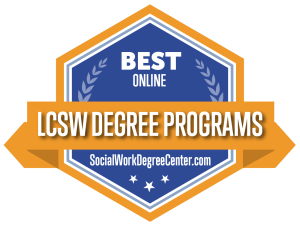
Quick Look:
- State-Specific Licensure Requirements: The path to becoming an LCSW varies by state, generally requiring a CSWE-accredited Master of Social Work (MSW) degree, supervised clinical hours (commonly 3,000), and passing state-specific exams such as the ASWB Clinical Examination.
- Program Flexibility and Specializations: Many online LCSW programs offer flexible options tailored to students’ needs, including accelerated tracks and diverse specializations such as mental health, substance abuse, or social welfare policy.
- Positive Job Outlook and Demand: The Bureau of Labor Statistics projects an 7% growth rate for clinical social workers over the next decade, driven by increasing needs for mental health and substance abuse treatment services.
- Competitive Salaries and Career Growth: Licensed clinical social workers earn higher-than-average wages compared to non-licensed social workers, with potential annual earnings ranging from $50,000 for entry-level roles to over $80,000 for experienced professionals.
The best online LCSW degree programs prepare students to become Licensed Clinical Social Workers, which is the field’s highest credential. Online education is perhaps the most convenient method for earning your master’s degree. It’s also a great way to enter this in-demand field.
Clinical Social Work is an advanced specialty. It’s focused on diagnosing and treating mental disorders. Social Workers also diagnose and treat behavioral and emotional disorders. All 50 states require Clinical Social Workers to be licensed. Becoming a Licensed Clinical Social Worker (LCSW) gives you the field’s highest credential and qualifies you for some of the best jobs as an LCSW.
Related:
- Best Online MPA Programs
- Fastest Online Master of Social Work Degree Programs
- Top MSW Programs for Child Welfare Careers
- Common Challenges in LCSW Certification
- LCSW vs. LMSW: Key Differences and Career Implications
- Continuing Education and Renewal Requirements for LCSW Certification
- Where are the Best Jobs for LCSW Graduates?
Methodology for Ranking the Best Online LCSW Degree Programs
The analytics team at Social Work Degree Center wants aspiring social workers and career-focused professionals to get the most out of their degrees. That’s why the analytics team focused our research excellent online options. For the Social Work Degree Center ranking of the Best Online Master of Social Work LCSW Degree Programs, the editors researched online programs from accredited, reputable schools. Data comes from the National Center for Education Statistics, IPEDS, College Navigator, Niche, and each school’s website.
For this ranking, Social Work Degree Center spent 83 hours of research and looked at 54 colleges and universities to compile the best online Master of Social Work LCSW degree programs ranking. More information on the accuracy of data and how we come up with our rankings is on the Social Work Degree Center Methodology page. Our editors first reviewed the online Master of Social Work LCSW programs in November 2021. This ranking was last updated in June 2025.
1. Columbia University

Columbia University’s has an online master of social work degree program with an Advanced Clinical Social Work Practice specialization. The degree is offered on-campus and also online and prepares students for various careers in clinical social work. The program covers the fundamentals of:
- social work
- ethics
- human behavior
- professional practice
Graduates qualify to work as clinicians in Medical or School Social Work. Other professional areas of practice include Substance Use Treatment and Mental Health.
Columbia University’s School of Social Work has made a big difference in New York and beyond. The school’s mission is to prepare leaders for social work practice, teaching, policy, and also research. To accomplish this goal, Columbia uses the latest research in the field, which they offer through their curriculum. In addition, building leadership skills through student field education placements and internship opportunities is an important focus.
Degree: MSW – Advanced Clinical Social Work Practice specialization
2. Rutgers University

The online master of social work LCSW degree program at Rutgers University is a MSW with a Clinical Social Work concentration. The Rutgers program works well for licensed social workers who want to both deepen their practice and broaden their skills to include clinical duties. Students learn how people’s environments impact both their behavior and emotions. In addition, they also learn how to provide research-based interventions.
Rutgers University is a respected and challenging school with several campuses. Additionally, its online learning platform performs exceptionally well. Rutgers is a large public institution that offers many majors across the arts, humanities, science, social sciences, and other fields. The school competes academically with other well-respected universities. It also connects students to the resources they need for career and academic success. The Social Work programs at Rutgers have made an impact in the field.
Degree: MSW – Clinical Social Work concentration
3. University of Utah

The University of Utah’s online master of social work degree LCSW program has a Mental Health in Social Work focus and a sub-specialty in Clinical Social Work. Utah’s online MSW program has many options for completion, including a traditional and also an advanced standing track. However, these programs only have one start date each year. Students in the traditional two-year program start in August. The advanced standing one-year program begins in May at the beginning of the summer semester. Practicums for the program are coordinated through the university and are also in the student’s home community. Students work in the field approximately two days a week during the first year and three days a week during the second year.
The University of Utah’s College of Social work is well-known among social work schools. The college offers a variety of social work programs at the undergraduate and also graduate levels. In addition, a comprehensive social work curriculum enables students to students build and maintain thriving careers.
Degree: MSW – Mental Health in Social Work focus and a sub-specialty in Clinical Social Work
4. Florida State University
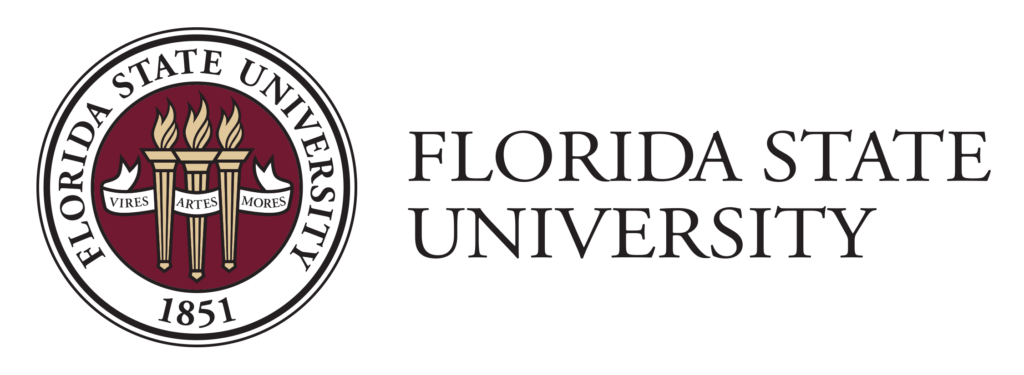
The LCSW degree program at Florida State University is an online Master’s degree in Social Work with a clinical focus. This practical, hands-on, and research-based program is an excellent fit for those seeking to make a difference in the world around them. The courses cover topics like social welfare policy and community organization and development. FUS’s online MSW’s are only offered part-time to accommodate working professionals. However, students can complete the Advanced Standing Social Work program in two years. Whereas, the Traditional Social Work program takes three years to finish. In addition, both the Advanced Standing and Traditional students participate in clinically-focused field education placements. With this experience, graduates qualify to pursue a license in Clinical Social Work.
Florida State University is one of the nation’s top public universities, and it also has an outstanding College of Social Work. This school is one of the top choices for social work students in Florida. FSU also makes an excellent choice for graduate students in general. It has earned high rankings for its graduate programs, online learning opportunities, and value. FSU has a diverse student body and also a lot of options for student success.
Degree: MSW – Clinically focused
5. University of Georgia

The University of Georgia’s online degree program is an MSW Micro Practice specialization. The recent addition to online MSW from UGA focuses on the skills students need for clinical practice. This master of social work program helps students become leaders in the social work field, with courses for developing leadership skills that students will need. Students may also specialize in other topics like family or diverse groups. Social work careers are growing rapidly, and the UGA MSW helps students gain the skills they’ll need to thrive in these careers.
The University of Georgia is one of the best public universities in the nation. In addition, many of their programs are in an online format, allowing students to learn from virtually any part of the world. UGA’s faculty are also leading experts in their respective fields, which means students will get a profoundly relevant education. Students are first at UGA and can shape the future they want to create.
Degree: MSW – Micro Practice Specialization
6. University of South Florida

The LCSW degree program at the University of South Florida is an online MSW focusing on Social Work Clinical Practice. This degree program provides the knowledge, skills, and values needed by professionals in social work clinical practice. Conveniently offered in an online format, the curriculum covers human behavior, social welfare, and also current events. In addition, the master of social work program uses a cohort model, so students get to know their fellow learners and stay with them throughout the degree.
The University of South Florida has a thriving School of Social Work. The school has many highly-ranked courses and programs. These programs use a rigorous curriculum that focuses on research, compassion, and community engagement. Because of the online options, students get a lot of flexibility. At the same time, they don’t have to sacrifice community-based learning. USF’s School of Social Work helps students combine both.
Degree: MSW – Clinical Practice focus
7. Arizona State University

Arizona State University offers another one of the best online degree programs for becoming a LCSW. The ASU Master’s in Social Work with a Behavioral Health focus prepares graduates to be leaders in the social work profession. Those who earn this degree can work with individuals, families, and organizations, helping them achieve their goals and improve their quality of life. Students learn how to solve complicated problems using both evidence-based approaches and compassionate care. In addition, students in ASU’s program prepare for professional licensure. Other focus areas offered with the MSW include:
- administration
- policy practice
- community practice
- family services
Arizona State University is known for its innovation, but the school offers much more than that. It leads the way in research and connects students to essential opportunities. Understanding that students achieve their goals when provided with the right resources, ASU has developed an excellent online learning platform. Students can take advantage of online classes and courses, videos, and other interactive content. As a result, busy adult learners can get a research-based education from nearly any location.
Degree: MSW – Behavioral Health focus
8. University of Central Florida
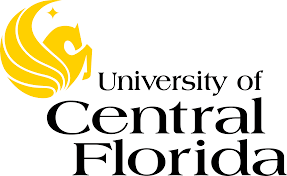
Another one of the best online clinical social work programs is at the University of Central Florida. It offers students the opportunity to make a difference in their communities. This MSW degree with a Clinical emphasis prepares students to become Licensed Clinical Social Workers. Additionally, the UCF program meets the State of Florida criteria for LCSW licensure. However, prospective students are encouraged to research the requirements for their state before enrolling. The accredited online MSW tracks are only available on a part-time basis. The traditional online MSW takes three years to complete, while the Advanced Standing track takes 16 months.
UCF Online is committed to providing the same high-quality education that students get on campus. UCF provides excellent learning courses at an affordable cost. With more than 100 fully online programs, UCF offers many opportunities for flexible career advancement. UCF has been recognized for its innovation. That’s why UCF students have gone on to make a difference in social work. Its evidence-based courses help students keep up with the latest social work needs.
Degree: MSW – Clinical emphasis
9. Case Western Reserve University

The online MSW with a specialization in mental health with adults is one of the clinical social work programs available at Case Western Reserve University. Based on educational background, students can choose from either the Traditional Track or the Advanced Standing Track. The Case Western MSW program prepares students for mental health practice in a variety of professional settings. Graduates are qualified to work as healthcare social workers, in mental health centers, and also substance abuse treatment programs.
Case Western Reserve University (CWRU) is a private university. The school opened in 1826 in Cleveland, Ohio, and took its current name in 1967. Today the school enrolls over 11,000 students annually. It offers over 90 undergraduate degrees and over 100 graduate and professional programs. The Mandel School of Applied Social Sciences was the nation’s first university-affiliated professional graduate school of Social Work. And it is widely recognized as one of the best schools of Social Worn in the country.
Degree: MSW – Mental Health with Adults specialization
10. University at Buffalo SUNY

The University at Buffalo offers another one of the best LCSW online social work programs. The SUNY Buffalo program is a part-time, fully online MSW program with a twelve-hour clinical concentration. Working professionals can earn their MSW, work toward their LCSW license, and still support their current careers. As a result, the University at Buffalo has become one of the best LCSW studies options. This MSW uses trauma-informed coursework. It recognizes that working with clients requires an empathetic, supportive environment. Therefore, it teaches students how to provide this kind of environment in their work.
The University at Buffalo has a well-respected School of Social Work. It offers both undergraduate and graduate degrees, including a Ph.D. program. It even has dual degree options. The School of Social Work provides challenging yet flexible programs for today’s students. These programs value diversity and cultural competence. They also let students hone their passions, explore their interests, and develop their skills in the way that works best for them.
Degree: MSW – Clinical concentration (12 hrs Clinical Course Credits)
11. The Ohio State University

One of the best MSW online social work programs is at Ohio State University. Standing out as one of the most affordable online MSW’s, the OSU tuition for out-of-state students is a fraction more than in-state students pay. The Ohio State online MSW with a Mental Health and Substance Abuse area of emphasis prepares students to succeed in Clinical Social Work. Students in this online MSW gain critical skills while enjoying flexibility. The program offers a one-year Advanced Standing and a Traditional two-year plan for degree completion. In addition, students in both paths can attend part-time or full-time.
Ohio State has a large, diverse student population and many opportunities for social workers to learn and grow. The College of Social Work offers undergraduate and graduate programs for students interested in the field. With a focus on research-based practices, Ohio State provides some of the best programs in the country. OSU also performs well when it comes to online learning and is an excellent fit for virtual learners who have busy lives outside of school.
Degree: MSW – Mental Health and Substance Abuse area of emphasis
12. Salisbury University
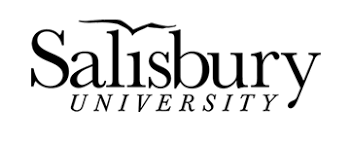
The online LCSW degree program at Salisbury University combines ethics and innovation. Students in the MSW with an Advanced Direct Practice specialization learn the best practices for clinical social work. The program covers essential skills like:
- assessments and evaluations
- mental health support
- addressing social issues
By the time they graduate, students are qualified to work in many social work environments and with various populations. Students are admitted to the MSW program as a twenty-student cohort once a year in the fall. All courses are in seven-week blocks. Advanced standing students can complete the program in seventeen months, and traditional students can finish in about three years.
At Salisbury University, the School of Social Work empowers students to make a difference. It offers a top-quality education that prepares students to provide services for both diverse and vulnerable populations. The School of Social Work takes a student-centered approach, improving society through the success of its students. Salisbury appeals to students who have a passion for helping others. This school helps them hone that passion and strengthen their skills.
Degree: MSW – Advanced Direct Practice specialization
13. University of Northern Iowa

One of the most progressive LCSW online social work programs is at the University of Northern Iowa. With a Trauma Informed Practice Specialization it is the only MSW program in Iowa that offers this cutting-edge specialization. Students learn integrated approaches for treating complex forms of psychological trauma. As a nationally-recognized leader in preparing social work professionals, UNI faculty members have extensive experience working with marginalized communities. As one of the best online options, this MSW program helps students take their careers to new levels. MSW students can succeed in many social work environments, including hospitals, agencies, and more. In addition, this program ranks highly for affordability.
The University of Northern Iowa is one of the most affordable public universities in Iowa. However, students still get a high-quality education. UNI has top-notch faculty members with years of field experience. As a result, students benefit from plenty of resources. They grow their career skills and graduate with the kind of knowledge they need for success in the workforce. Ranked as one of the best schools in the Midwest, UNI has a lot to offer its students.
Degree: MSW – Trauma-Informed Practice Specialization
14. Temple University

Designed for working students, Temple University has one of the best LCSW degree programs. Temple’s online MSW with a Clinical Practice with Individuals and Families concentration lets students advance their careers without sacrificing other responsibilities. Students train to work as clinical therapists in both outpatient and inpatient settings. Two MSW program formats are available. Students can complete the traditional or Regular Entry MSW program in two years or part-time in four years. Alternately, students can finish the Advanced Standing program in twelve months or part-time in eighteen months. In addition, the courses in this program have a low student-to-faculty ratio. For students who want a personalized education, Temple provides one of the best online learning options. With its challenging curriculum, this MSW program develops vital social work skills.
Temple University offers a challenging but supportive learning environment. It has a wide range of courses, programs, and majors and lots of resources for student success. The School of Social Work is committed to social justice. It promotes all forms of diversity and addresses the most pressing social inequalities. Faculty members have lots of social work experience. The school also performs research that addresses critical social issues, so students get an up-to-date education.
Degree: MSW – Clinical Practice with Individuals and Families concentration
15. University of New Hampshire
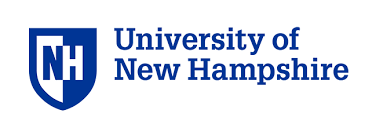
The University of New Hampshire has a LCSW degree program that prepares students for many social work careers. The school’s online MSW with a Health and Mental Health Field of Practice develops well-rounded practitioners who can work with vulnerable populations on all types of issues. This MSW is the first step to becoming a licensed clinical social worker (LCSW). Degree completion takes approximately twenty-eight months.
The University of New Hampshire has a lot to offer its students. This top public university excels at online learning. Committed to providing a high-quality education as a foundation for success, UNH gives students academic and career success skills. Faculty members are experts in their fields and dedicated to helping students achieve their goals. For social work students, this means having people on their side as they deal with challenging issues.
Degree: MSW – Health and Mental Health Field of Practice
16. Indiana Wesleyan University

The LCSW degree program at Indiana Wesleyan challenges students to look at the world through a new lens. The IWU Master’s in Social Work with an emphasis on clinical skills teaches students to apply theories to real-world scenarios. In addition, it prepares students for advanced social work and to develop their social work practice. This program is academically rigorous, but it also offers practical experience for those who wish to enter the field after graduation. As an online program, it also provides flexibility and two tracks. Students can complete the Advanced Standing track in sixteen months and the Standard in thirty-three months. Overall, it’s one of the best online options, especially for students who want a faith-based education.
Indiana Wesleyan is a Christian university that values the liberal arts. Its School of Social Work focuses on changing lives through social justice. The professors and students who attend the school work to promote human rights, economic justice, and equal opportunity. Indiana Wesleyan University delivers a challenging education. Students develop their potential in academics, career, and service to others.
Degree: MSW – emphasis on Clinical Skills
17. Northern Kentucky University

The LCSW online degree program at Northern Kentucky University is for students interested in clinical advanced practice. The clinical-focused MSW program prepares students who want to become clinical social workers. As one of the best LCSW preparation options, NKU provides both challenge and flexibility. Students develop their clinical knowledge and also critical leadership skills. Thus, they can thrive in this vital field and make a difference in people’s lives.
Northern Kentucky University is committed to the success of its students, no matter their academic goals. NKU offers both challenging majors and flexible degrees to help students achieve those goals. NKU is one of the top universities in the US because of its world-class education and personalized attention. Furthermore, the school’s online programs offer a lot of flexibility. Students can pursue their goals and keep up with their current responsibilities.
Degree: MSW
18. Louisiana State University
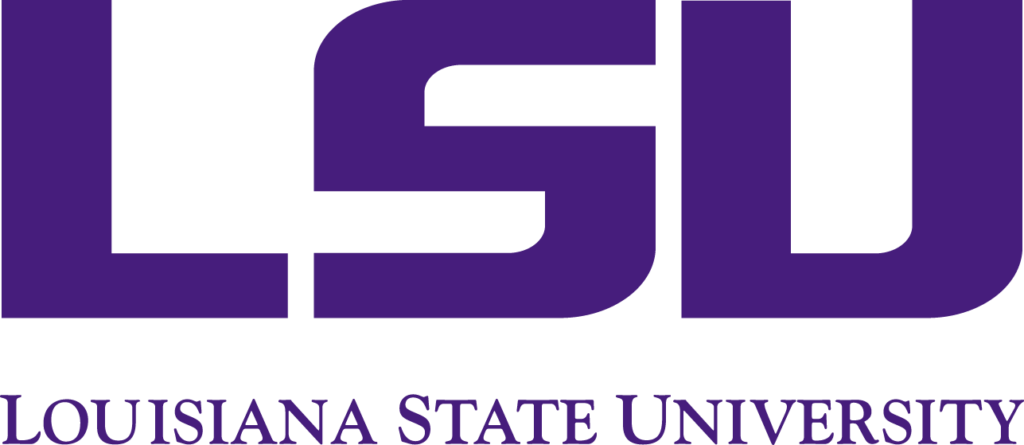
The Louisiana State University online LCSW degree program prepares students to become clinical practitioners. Louisiana State’s MSW with a Children and Youth Specialization provides students with the clinical assessment skills to respond to vulnerable children’s needs effectively. Courses cover many topics, including:
- research
- social policy
- family dynamics
In addition, the program has part-time, full-time, and advanced standing options. Thus, students have flexibility in attendance.
LSU’s School of Social Work educates and trains social work professionals. It also makes a difference for diverse populations. The School of Social Work promotes positive change and also helps students do the same. It uses evidence-based teaching and performs research to advance social justice causes. It also focuses on student success. As a result, students gain essential knowledge and skills for their work in the field. World-class faculty members provide an up-close look at the social work field.
Degree: MSW – Children and Youth Specialization
19. University of Louisville

The University of Louisville clinical social work program offers an online LCSW degree that prepares students to enter field of mental health. The school’s Master of Science in Social Work (MSSW) with a Mental Health specialization empowers students who want to make a difference in the social service field. The program includes courses that cover:
- social welfare
- mental health
- profession of social work
Many students choose UofL when they want the best online LCSW preparation. The coursework helps students prepare for licensure and success as clinical social workers.
The University of Louisville is a well-recognized research university. So, the school has a lot to offer ambitious students. At UofL, the MSSW comes from the Kent School of Social Work. This school appeals to students who want to make a difference in the world. The Kent School of Social Work offers courses for those who wish to become social workers, therapists, and also counselors. It provides some excellent online learning options, so students can get the flexibility they need.
Degree: MSSW – Mental Health specialization
20. Virginia Commonwealth University
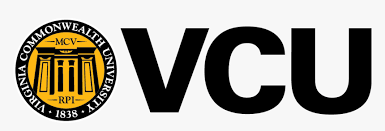
Virginia Commonwealth University has one of the best online LCSW degree programs. The school’s MSW boasts a robust social work curriculum and a also long history of excellent student placement and field education. VCU is committed to the values of diversity, social justice, and service. Students learn how to make a difference in people’s lives through social work. They learn skills that can help them work with children, adults, families, and communities. This degree also makes a good choice for those who want to pursue the clinical practice. It’s one of the best online LCSW preparation choices.
Virginia Commonwealth University is committed to providing an exceptional education for all students. Because of its knowledgeable faculty and staff, VCU is able to encourage an atmosphere of collaboration. Students benefit from the creativity, curiosity, and diversity that make up the VCU culture. VCU is also a leader in online learning, with both bachelor’s and master’s degree programs. The school offers flexibility while providing essential career training.
Degree: MSW

An MSW is a type of master’s degree. An LCSW is a person who is licensed to practice clinical social work. MSW stands for “Masters of Social Work.” In MSW programs, students learn essential skills and practices for their work in the field. LCSW stands for “Licensed Clinical Social Worker.” In addition, LCSWs often serve as counselors.
To become an LSCW, you’ll have to earn a master’s degree specializing in clinical work or counseling. However, earning a master’s degree does not automatically grant you an LCSW license. Once you earn your master’s degree, you’ll also need to perform supervised clinical hours and take a social work licensing exam.
State Social Work boards require that Licensed Clinical Social Worker, or LCSW, candidates have an accredited master’s degree. They must also have two years of clinical experience.
You can do a lot of things as a Licensed Clinical Social Worker. Most LCSWs work as counselors in private offices and public practices. Many specialize in a particular area. For example, you might focus on substance abuse counseling, marriage and family counseling, or any number of other regions. LCSWs are also qualified for other areas of social work. Some become caseworkers, for example.
How much do LCSWs make in a year? The average LCSW salary is $69,300 per year (Payscale). However, the top earners can make much more. Many factors can impact salary, like location, experience, and whether you work in a public or private setting. As you enter the field, you’ll probably start with a lower salary and make more money the longer you stay in the profession.
An LCSW is typically one of America’s best-ranked social service jobs. Employment statistics from the US Bureau of Labor Statistics Employment Projections show that demand in clinical social work will increase by thirteen percent (13%) through 2030. Additionally, the job offers some of the highest salaries in the field of social work.
sources:
- Tuition Rate – current IPEDS data
- Student Satisfaction – current Niche score
- Potential Salary – current Bureau of Labor Statistics (BLS) data
- School Websites – specific details about program length

